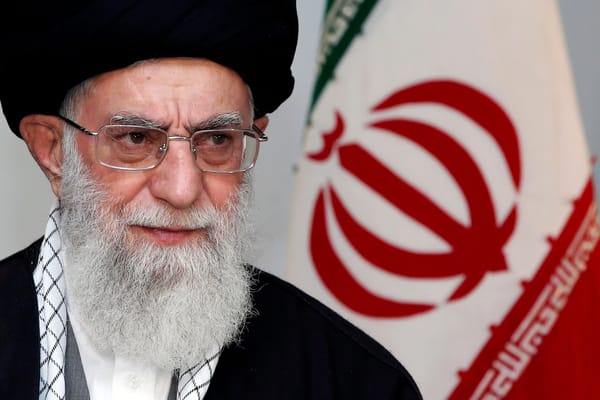Foreign Policy Shifts in the Middle East

President Trump has just returned from a Middle East tour that included stops in Saudi Arabia, Qatar, and the United Arab Emirates.
- A new approach to foreign policy—During a pivotal foreign policy speech in Saudi Arabia, President Trump outlined an approach less focused on exporting American ideals and democracy, and more focused on finding common ground through economic partnership.
- Cutting deals—On the trip, President Trump secured (at least on paper) over $2 trillion in commercial and defense contracts with Saudi Arabia, Qatar, and the UAE. Notable deals include a $600 billion investment from Saudi Arabia (including a $142 billion arms package, and a $96 billion purchase of 210 Boeing jets from Qatar Airways), plus a $1.2 trillion economic exchange agreement, a $243.5 billion commercial and defense pact with Qatar, and $200 billion in UAE commercial investment agreements.
- Syria sanctions lifted—In a dramatic policy shift, President Trump announced the U.S. would remove sanctions on Syria and agreed to meet with the country's new president, Ahmed al-Sharaa. Trump became the first U.S. president in 25 years to meet with Syria's leader. Global leaders were successful in a multi-year project to remove Syrian president Bashar al-Assad, but his replacement, al-Sharaa, was previously on the U.S. terror list due to his ties to al-Qaeda. The Biden administration removed a $10 million bounty on al-Sharaa's head in December.
- Iran nuclear negotiations—The administration presented Iran with a written proposal for a new nuclear deal during the fourth round of negotiations on Sunday. “I have never believed in having permanent enemies,” Trump said in Riyadh, offering Iran “an olive branch” while emphasizing that “Iran will never have a nuclear weapon.” The Iranian president wasn’t so easily convinced. President Masoud Pezeshkian called Trump’s stance “naive,” which highlights ongoing challenges in negotiations.
- Hamas releases last American hostage—Hamas freed 21-year-old American citizen Edan Alexander on Monday, after holding him captive in Gaza for nearly 600 days. The release came after a weekend of negotiations mediated by Qatari and Egyptian officials, though Israel reportedly did not participate in or learn about the deal until late Sunday.
Other News
🇨🇳 US-China Announce 90-Day Tariff Truce
The United States and China have agreed to a 90-day pause in their trade war, Treasury Secretary Scott Bessent announced early Monday morning from Switzerland. In a significant de-escalation, the U.S. will lower its tariffs on Chinese goods from 145% to 30%, while China will cut its tariffs on American products from 125% to 10%.
“The consensus from both delegations this weekend is neither side wants a decoupling,” Bessent said after the weekend negotiations. “What had occurred with these very high tariffs . . . was an embargo, the equivalent of an embargo. And neither side wants that. We do want trade . . . We want more balanced trade. And I think that both sides are committed to achieving that.”
Markets responded positively, though some warn that a potential surge in orders could stretch supply chains in the coming weeks.
💊 Executive Order on Drug Prices
President Trump signed an executive order Monday aimed at lowering prescription drug prices, declaring the U.S. “will no longer tolerate profiteering and price gouging from Big Pharma.”
“The principle is simple—whatever the lowest price paid for a drug in other developed countries, that is the price that Americans will pay,” Trump said, estimating that some prices could drop by “50 to 80 to 90%.”
🏛️ Republican Tax Bill Fails
GOP lawmakers released their 389-page tax proposal on Monday, based on President Trump’s proposal, aiming to move the legislation to the Senate by Memorial Day and have it on the President's desk by July 4. The House Budget Committee rejected the spending bill, with four hardline conservatives voting against it. These representatives are pushing for more aggressive spending cuts, particularly to Medicaid, a position generally unpopular with the public.
🩺 Breakthrough in Gene-Editing Treatment
Pennsylvania infant KJ Muldoon became the first patient to receive a groundbreaking DNA editing treatment that corrected a liver disorder. Unlike previous gene therapies that add functional genes alongside mutated ones, doctors actually edited KJ's genome to fix the underlying genetic issue, allowing his liver to properly process ammonia from protein digestion. No one yet knows the long-term results of such gene editing.
🥜 The Decline of the Southern Accent
According to recent linguistic research, American regional accents are gradually disappearing. More than 5.8 million people have moved into the U.S. South so far in the 2020s, more than four times the combined total of the nation’s three other regions. Studies have found diminishing Southern accents among various demographic groups.
In Atlanta, Georgia, the Southern accents of both blacks and whites are being replaced with a dialect which originated in California in the 1980s. This pan-regional accent has now been detected in areas previously known for distinctive accents, including Boston, New York, and Michigan, contributing to the homogenization of American speech.
According to the New York Post, “Linguists don’t believe mass media has played a significant role in the language change, which tends to start in urban areas and radiate out to more rural places.” Ain’t no way that’s true, honey . . . .





